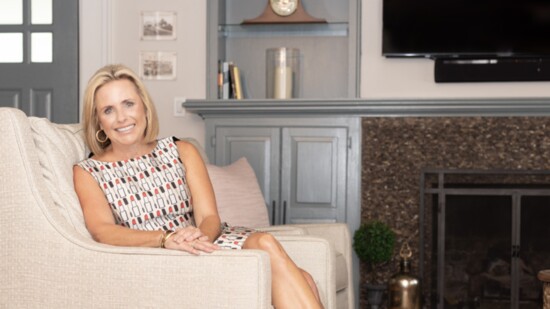An organized home helps families feel settled, but many find the process stressful. Starting small and enlisting an expert can mitigate any pesky, overwhelmed feelings telling you to sell your house as you stare at an overflowing craft drawer or teenager's closet. Kami Ford, a professional organizer from Fort Worth's Deklutter with Kami, takes us room-by-room, sharing her trade tips and tricks that will have your home running smoothly for years (OK, maybe months). So, read below before fleeing your home. You've got this!
1. Laundry Room: "Begin with the laundry room," says Ford. "This is often a hub for clutter and can become a dumping zone! You can group cleaning supplies together in clear bins with easy-to-read labels."
She advises removing anything unrelated to laundry and keeping a basket for misplaced items, like unmatched socks, to unload weekly.
"Invest in durable clothing hampers and consider adding a sorted hamper in your bathroom or closet," she continues. "Use wall space for hooks or rods for hanging clothes, and add magnetic containers for small items like dryer sheets."
Ford recommends enhancing the room's ambiance with cozy lighting like a pendant light or accessory lamp to make the space feel welcoming and organized.
"Do what makes you feel cozy and happy, when you enter the room."
2. Bathrooms: Ford recommends first focusing on eye-level areas like sink space, which tends to accumulate clutter when tackling the bathroom. "Invest in vanity trays or double-tiered shelves for frequently used items," she says. "This will keep the countertop clear. Use under-sink pullout drawers for less-used items, and organize with drawer containers and dividers."
Like the laundry room, it's best to group similar backstock and label medicines in clear bins, properly storing them in the medicine cabinet to eliminate a scramble during an emergency.
"If space is tight, consider decorative baskets for towels and vertical solutions like wall hooks to keep robes, pajamas, and towels off the floor."
3. Bedroom Closets: Ford's method for closet organization is breaking it into smaller sections.
"Have donation and trash bins on hand to easily discard unwanted items," she advises. "Start with hanging clothes, grouping them by type and color, and purge anything you haven’t worn in a year." She recommends organizing shoes by style and considering space-saving products like multi-hangers or under-bed storage boxes for out-of-season clothes. Revisit her advice for the bathroom, and maximize vertical space with hat racks or extra shelving, ensuring everything has a designated place.
4. Entryway & Mudrooms: Another danger zone for clutter, Ford explains homeowners can transform their home’s entryway from an anxiety-inducing mess to a functional station.
"A simple row of hooks and a shoe rack by the door can make a big difference," she says. "Mudrooms with cubbies are ideal for storing daily essentials like backpacks, shoes, and jackets."
Have fun with it since mudrooms are typically less formal. Ford encourages people to regularly update the area based on the season, storing away winter gear in warmer months. Baskets, bins, and hooks help contain clutter, and adding a family calendar or chore list can keep everyone on the same page.
5. Sentimental Items and Pictures: Ford acknowledges the difficulty storing sentimental items, often becoming a homeowner's greatest weakness while decluttering.
"We all have sentimental items, but it can be hard to know where to store them," she says. "Truthfully, these items are not used or looked at often."
If there is space, Ford recommends using large, clear bins with bold labels for items like photo albums and yearbooks.
"If space is tight, consider decorative storage solutions or photo organizers," she continues. "If you find yourself hanging onto items because of their sentimental appeal, ask yourself if you would be happier letting it go and keeping a photo of the item instead."
While occasionally cumbersome, there is no denying that offloading clutter feels great. Ford agrees that it should, emphasizing that the right way to organize is the way that works for you.
"Tackling major reorganization and decluttering is a big accomplishment," encourages Ford. "You should feel good about it. Maintain the momentum by making it a habit. Create a routine or system and stick with it."
